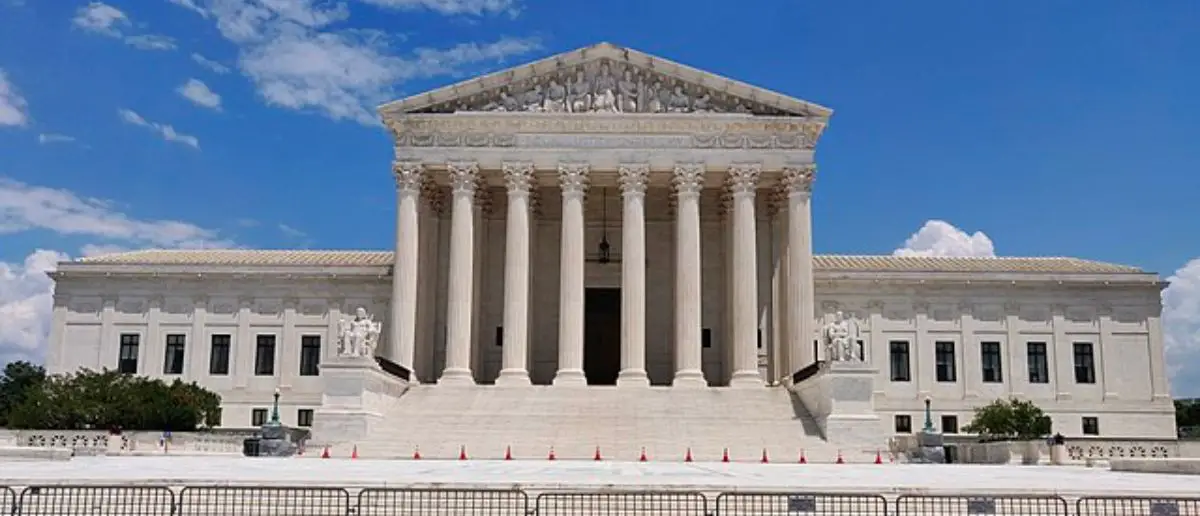
When Trump appointed three Justices to the Supreme Court, conservatives thought the Judicial fight was over. Unfortunately, they were wrong.
Because the Supreme Court handed Biden a surprise win that should concern everyone.
The Supreme Court awarded the Biden administration a big victory in a key immigration case on Friday, saying that Republican-led states lack standing to challenge a policy that limits federal immigration enforcement.
In U.S. v. Texas, the Supreme Court ruled 8-1 that Republican states lacked standing to challenge a restriction of Immigration and Customs Enforcement (ICE) priorities for arrests and deportations of illegal immigrants.
“In sum, the States have brought an extraordinarily unusual lawsuit. They want a federal court to order the Executive Branch to alter its arrest policies so as to make more arrests. Federal courts have not traditionally entertained that kind of lawsuit; indeed, the States cite no precedent for a lawsuit like this,” the opinion, written by Justice Brett Kavanaugh, said.
The Department of Homeland Security (DHS) issued new enforcement guidelines in this instance. After seeking to place a 30-day moratorium on all ICE deportations, the government published rules limiting ICE officers to arresting and deporting three sorts of illegal immigrants: recent border crossers, dangers to public safety, and national security concerns.
“The fact an individual is a removable noncitizen therefore should not alone be the basis of an enforcement action against them,” DHS Secretary Alejandro Mayorkas said in the memo.
“We will use our discretion and focus our enforcement resources in a more targeted way. It is necessary for the sake of justice and the well-being of our country.”
The Department of Homeland Security claimed it was the most efficient use of limited resources to defend the American people, but others saw it as part of a larger rollback of enforcement and border security. The implementation of such guidelines coincided with a significant decrease in ICE deportations.
In fiscal year 2021, which encompassed the final months of Trump’s presidency, ICE apprehended 74,082 noncitizens and deported 59,011.
Only 47,755 of the 74,082 arrests made between October 2020 and October 2021 occurred after February 18, when the new objectives were introduced. Only 28,677 of the 59,011 deportations took place after February 18.
Texas and Louisiana challenged the guidelines’ legality, claiming that the policy violated the Administrative Procedure Act and that they had standing because the increased illegal immigration would increase law enforcement costs and have a significant impact on social services. A district judge ruled that the states did have standing and halted the policy’s execution.
However, the high court disagreed: “The threshold question is whether the States have standing under Article III to maintain this suit. The answer is no.” According to the ruling, while monetary costs are an injury, the injury must also be “legally and judicially cognizable.”
It further stressed that it was not saying that states would never have standing over an alleged failure to conduct additional arrests or prosecutions — even if the Executive Branch “wholly abandoned” its responsibilities in this regard — but that they would not in this case.
Justices Neil Gorsuch, Amy Coney Barrett, and Clarence Thomas joined the decision but stated that they “diagnose the jurisdictional defect differently… the problem here is redressability.” They say that the states lack standing “because federal courts do not have authority to redress their injuries.”
Justice Alito, in his dissent, says that the majority “brushes aside a major precedent that directly controls the standing question, refuses to apply our established test for standing, disregards factual findings made by the District Court after a trial, and holds that the only limit on the power of a President to disobey a law like the important provision at issue is Congress’s power to employ the weapons of inter-branch warfare — withholding funds, impeachment and removal, etc.”
Alito points out that in the 1990s, Congress approved legislation mandating the detention and removal of illegal aliens guilty of certain offenses.
“The Secretary of Homeland Security, however, has instructed his agents to disobey this legislative command and instead follow a different policy that is more to his liking. And the Court now says that no party injured by this policy is allowed to challenge it in court,” he says, accusing his colleagues of “a deeply and dangerously” flawed interpretation of executive authority.
So what does this all mean? It means that Biden and Homeland Security Secretary Mayorkas can continue to prevent ICE agents from arresting certain illegal immigrants just because they want to.
The law be damned.
Stay tuned to The DC Daily Journal.





